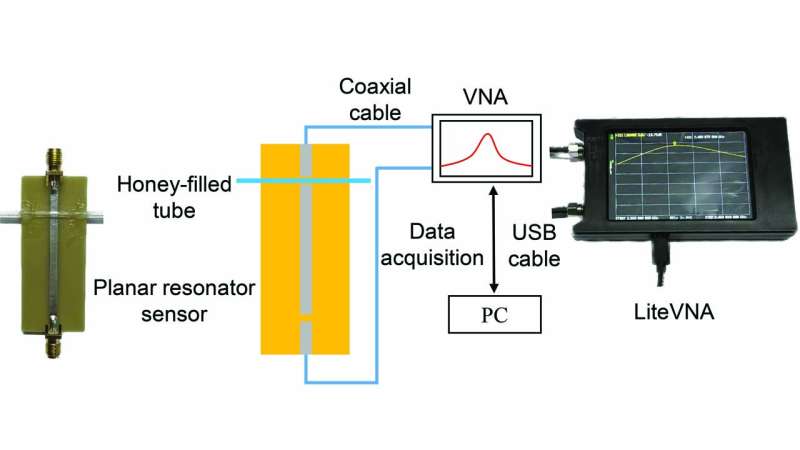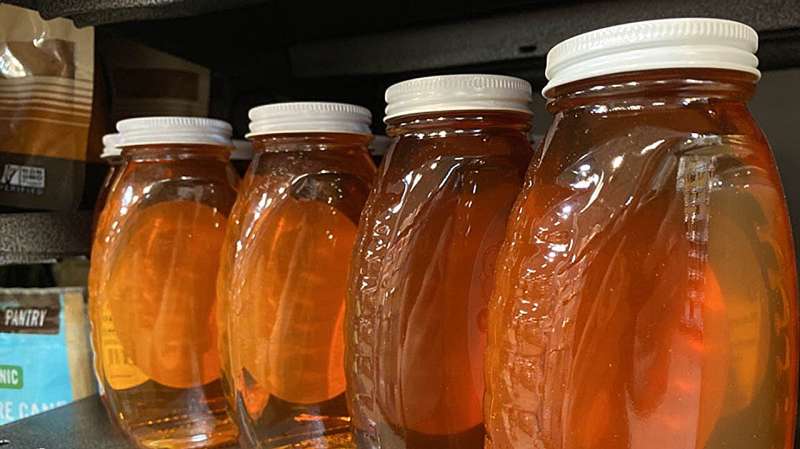Sweet victory: Sensor detects adulteration in honey

Adulteration is a bitter truth in the sweet world of honey. As consumers seek nature’s nectar for its purity and health benefits, a shadowy industry taints this golden elixir with hidden additives, most commonly water.
Standard detection methods of honey adulteration are expensive, and either have complicated operation methods or low detection accuracy.
A team of scientists from the Nanjing University of Aeronautics and Astronautics and the Hebei University of Technology has developed a microwave microstrip line planar resonator sensor tool to detect water adulteration in honey. The tool is compact, cost-effective, and easily fabricated.
The article, “Evaluation of adulteration in honey using a microwave planar resonator sensor,” appears in Review of Scientific Instruments.
The microstrip line resonator sensor is fabricated on a dielectric substrate, which is an insulator that can efficiently support electrostatic fields, such as ceramic or glass. On top there are three thin copper strips separated by two gaps. The length of the middle strip and the electric field intensity at the gaps determine the resonance frequency of the device.
“When we add water to honey, it changes how the electromagnetic field behaves around it,” said author Zhen Li. “When placed in the sensor, adulterated honey shifts the sensor’s resonance frequency. By measuring this shift, we can detect water adulteration in honey.”

The team tested honey samples with varying water content. They found that the sensor’s resonance frequency consistently decreases with increased added water content.
“When choosing a honey product, my family members always have the concerns of whether it is authentic or not,” said Li. “This sensor provides a cost-effective and efficient method for the food industry to ensure honey authenticity.”
The device inspires further applications in liquid analysis, in industries such as food quality control, pharmaceuticals, and petrochemicals, for detecting impurities or composition changes, potentially advancing sensing technology.
“We aim to extend our research to detect adulteration in other liquid products and develop more sensitive sensors for broader applications in quality control and food safety,” said Li, “starting with the impact of temperature on our sensor’s performance.”
With the dedication of scientists like those behind this efficient sensor, we can look forward to a future where the honey in our jars remains untainted and as pure as the bees intended.
More information:
Qi Jin et al, Evaluation of adulteration in honey using a microwave planar resonator sensor, Review of Scientific Instruments (2023). DOI: 10.1063/5.0166005
Citation:
Sweet victory: Sensor detects adulteration in honey (2023, October 10)
retrieved 16 October 2023
from https://techxplore.com/news/2023-10-sweet-victory-sensor-adulteration-honey.html
This document is subject to copyright. Apart from any fair dealing for the purpose of private study or research, no
part may be reproduced without the written permission. The content is provided for information purposes only.
For all the latest Technology News Click Here
For the latest news and updates, follow us on Google News.

